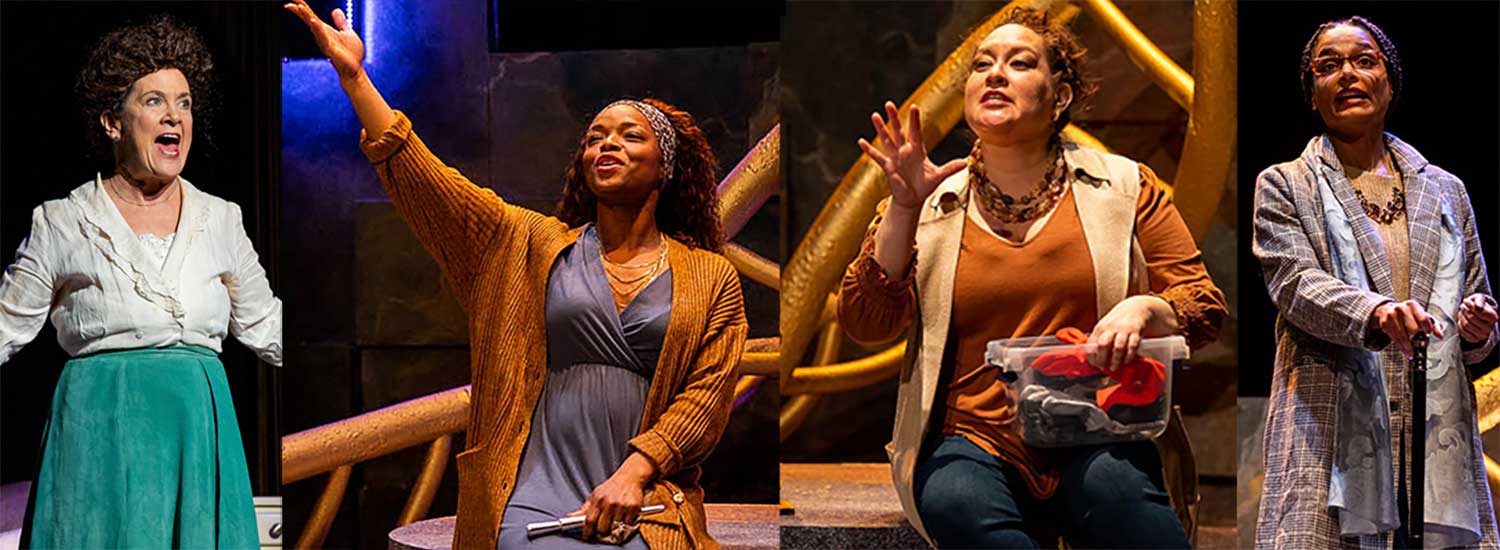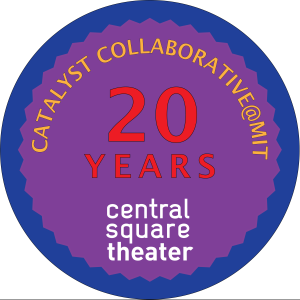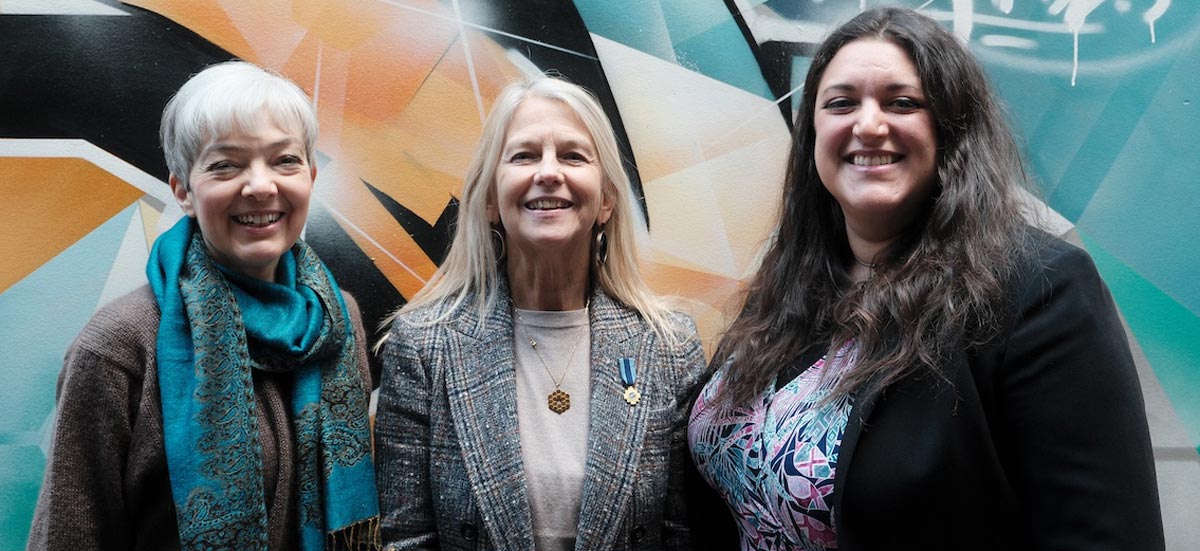

Catalyst Collaborative@MIT (CC@MIT) creates and presents theater that deepens public engagement in science, providing a vibrant tapestry of experiences and emotions while making profound human connections with science.
Located only blocks away from the MIT Campus, Central Square Theater collaborates with MIT, the nation’s longest on-going partnership between a professional theater and a major research institution.
Catalyst Collaborative@MIT’s accomplishments:
- 35 productions
- 5 new play commissions
- 10 world premieres
- Over 175 pre & post performance conversations and panels with scientists and artists
- Over 45 stage readings presented in more than 20 venues across 3 states, including:
- The American Academy of Arts & Sciences;
- MIT Museum;
- Community organizations, and schools.
- 15 Education and Outreach residencies created specifically for young people ages 10-25
- The month long virtual Brit d’Arbeloff Women in Science Festival in 2021
- Over 300 Scientists and Artists engaged in the past 20 years.
Special Events – Upcoming!
Science Soirée
Celebrating the 20th Anniversary of Catalyst Collaborative@MIT
April 22, 2025
Multicultural Art Center in Cambridge, MA
Learn More and Buy Your Tickets!
Support Catalyst Collaborative@MIT. Your contribution TODAY supports the next 20 years of science on stage! Your gift is needed now more than ever. And, through a generous group of donors, all contributions will be matched up to $20,000!
Past Events from this Momentous Season
Women in Science Brunch
Sunday February 23, 2025.
Brunch and Conversation with women scientist shaping our future.
Special Guests Dr. Dava Newman, Inventor of the revolutionary BioSuit™ planetary spacesuit and Director of MIT Media Lab; Dr. Alissa J. Haddaji Founder/Director of The Space Consortium; and Dr. Irene Porro, Director, Christa C. McAuliffe Center for Integrated Science and Learning .
Thank you to: Restaurant Sponsor Vialê. Visit them and their sister restaurant Althea before your next visit to Central Square Theater!
View photos from the Women in Science Brunch!
Science Soireé – CC@MIT 20th Anniversary Gala Celebration, April 22, 2025
Community and Education Events
Tour: Inventing Samanta
Youth Underground Arts and Science Fellowship
